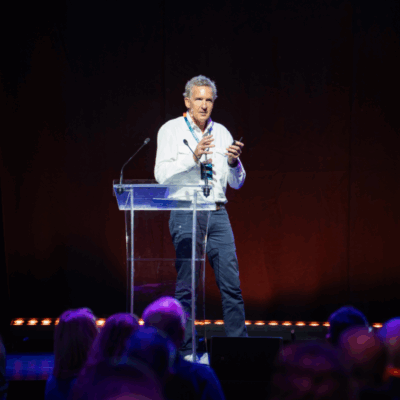Making ground
Ben Grant and Josh Kempton are on a mission to win the war on plastic waste with their fully home compostable packaging products – and they’re off to a flying […]
Ben Grant and Josh Kempton are on a mission to win the war on plastic waste with their fully home compostable packaging products – and they’re off to a flying start.
War has been declared; the war against single-use soft plastic packaging.
Ben Grant and Josh Kempton have seen the environmental impact of these plastics first-hand – particularly, in Ben’s case, within the hospitality industry.
They’d talked about business ideas and opportunities many times over a number of years, but it was only when Ben sold his successful multimillion dollar restaurant chain Bird on a Wire in late 2018 that he came up with the idea of addressing the development of composting infrastructure.
“I had a conversation with Josh around that, specifically around his experience from the packaging side, and the idea and focus [for Grounded] grew from that chat,” recalls Ben.
“We realised there was this huge and rapidly growing part of the market that was being completely unserved. It was causing this massive environmental impact and businesses were crying out for a good solution.”
Today Auckland-based Grounded has that solution – it is producing plant-based, home compostable packaging which breaks down into organic matter, not microplastics. The company is currently rolling out its plastic-free packaging in both New Zealand and Australia, and people are able to put the packaging directly into their own compost heaps or bins, rather than putting it in landfill rubbish bins or relying on Council-run composting schemes.
Ben and Josh believe composting is the best solution as traditional recycling struggles to deal with soft or flexible plastics. “Flexible packaging is one of the fastest growing areas in the wider packaging industry as it is cost effective and functional, but it also generates significant plastic waste which is hard to deal with,” says Ben. “We see plastic alternatives becoming increasingly viable from a cost perspective and their use becoming more widespread in the short-to-medium term.”
He says Grounded’s business model is based around working with market leading technology to create solutions to remove plastics from the supply chain.
However, home compostable solutions are not always available for certain applications. “In cases like these we’re always on the hunt for new innovative and proven technologies that reduce plastics in the supply chain and offer a post-life option to be repurposed.”
Scaling up
The business has come with its own set of challenges – particularly around scaling.
“Demand for the product is huge so the key challenge for us is making sure that as we scale up we ensure we build a robust supply chain that’s able to deliver consistently excellent products in significant volumes,” explains Ben.
So far the business has been shareholder funded, “but,” says Ben, with his cards close to his chest, “we are working on something quite exciting which might require additional support in time.” A case of ‘watch this space’.
Naturally both Ben and Josh are hot on the need to address climate change. One of the really important issues is educating businesses and consumers around the effects of their activities and purchase decisions, and the resulting footprint they leave, says Ben.
“People need to be given the tools to be able to evaluate the decisions they are making. I only really became aware of this through owning a business and seeing the scale of the ‘wake’ we were leaving. This led us to build our understanding and knowledge in the area.
“This is particularly relevant in the packaging space as it is a surprisingly complex and opaque industry – so general education and transparency is something we’re quite focused on.”
He wants to see the government taking a more direct approach to legislating change; to disincentivising carbon/methane emissions and setting increasingly aggressive targets around reduction in that area.
“You could also potentially flip that and have the government look at incentivising positive actions and behaviours.”
Ben believes businesses have an exciting opportunity to address the climate change challenge and be proactive in changing their behaviours. “And, as opposed to looking at it as a cost, there is significant potential for building brand equity off the back of that.”
Making an impact
Meanwhile, the goal for Grounded over the next five years is to have a material impact on reducing and removing plastics from the supply chain in Australasia.
“If we can be part of a solution that removes ten percent-plus of these plastics it will have been a huge achievement,” says a confident Ben. “We are working towards a platform for SMEs that should allow for significantly greater transparency and more active management of sourcing packaging and plastic alternatives.”
Ben and Josh’s hope is that local councils and government introduce a third bin for food scraps and compost in the next two to three years across the major cities on both sides of the Tasman. This should have a significant impact on diverting food scraps from landfill and reducing methane emissions. It would also provide wide-spread infrastructure for dealing with packaging that is better suited for organic recycling.
Kiwi businesses have an opportunity to lead the way and put New Zealand on the map as an example of what can be achieved around reduction of plastic usage, says Ben.
“If we can help drive that change and set the example internationally it will have been a pretty cool thing to have been a part of.”
Up for the challenge?
It doesn’t matter what sector your business operates in, Ben and Josh say it’s crucial to reduce and manage your carbon footprint. They use a framework from the Ellen Macarthur Foundation as a guideline:
1. Re-use model applied where relevant; reducing need/reliance on single-use plastics.
2. All packaging 100 percent reusable, recyclable, or compostable.
3. All packaging re-used, recycled or composted, in practice.
4. Businesses have a responsibility to contribute towards end-of-life objectives.
5. The use of plastic is decoupled from the consumption of finite resources.
6. All packaging free of hazardous chemicals.
For more go to: https://www.ellenmacarthurfoundation.org/






